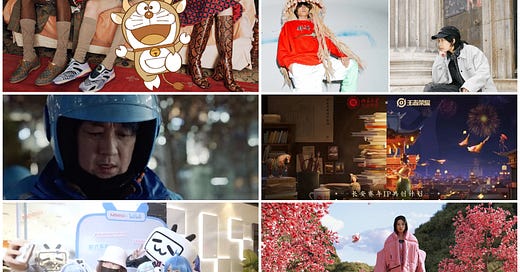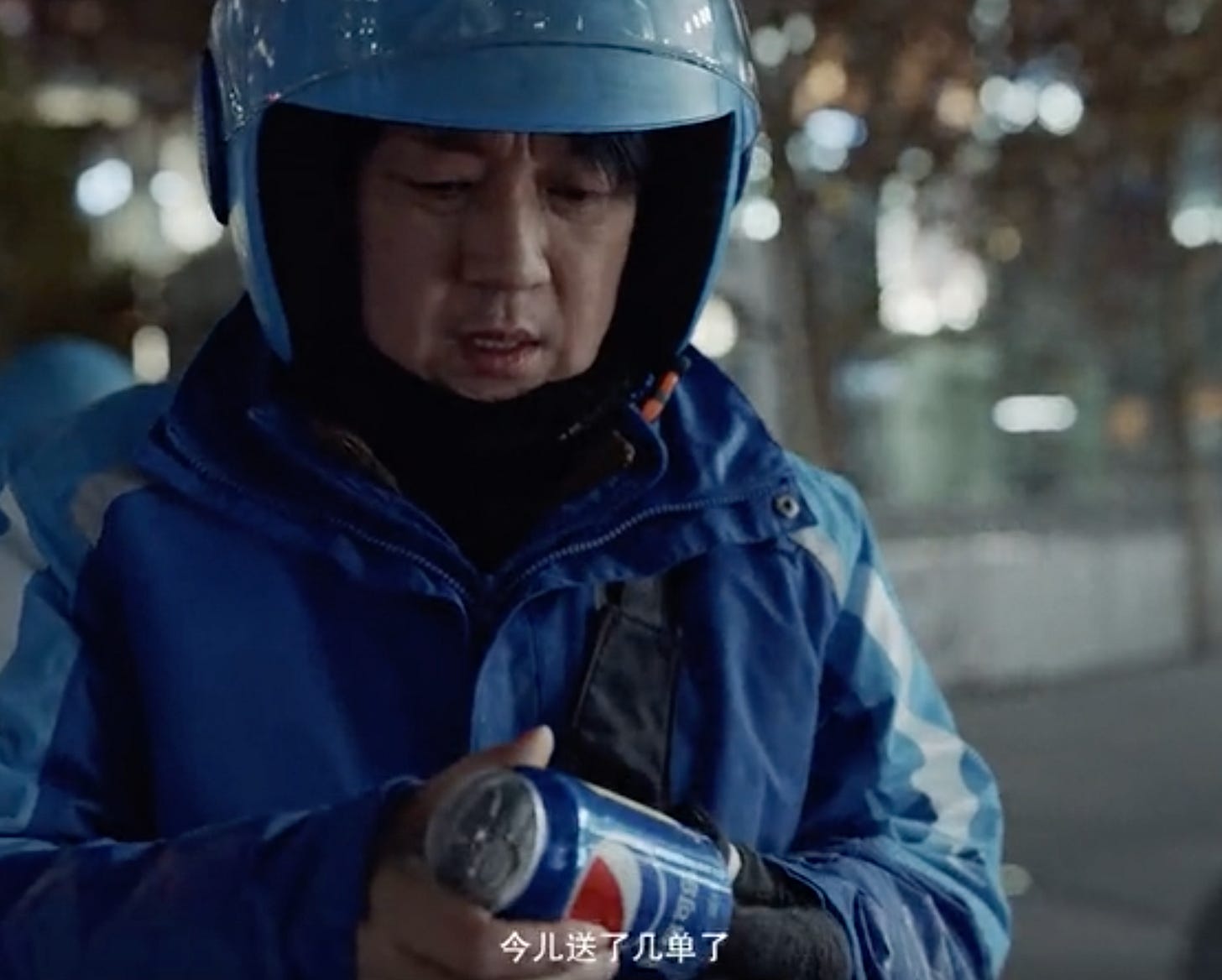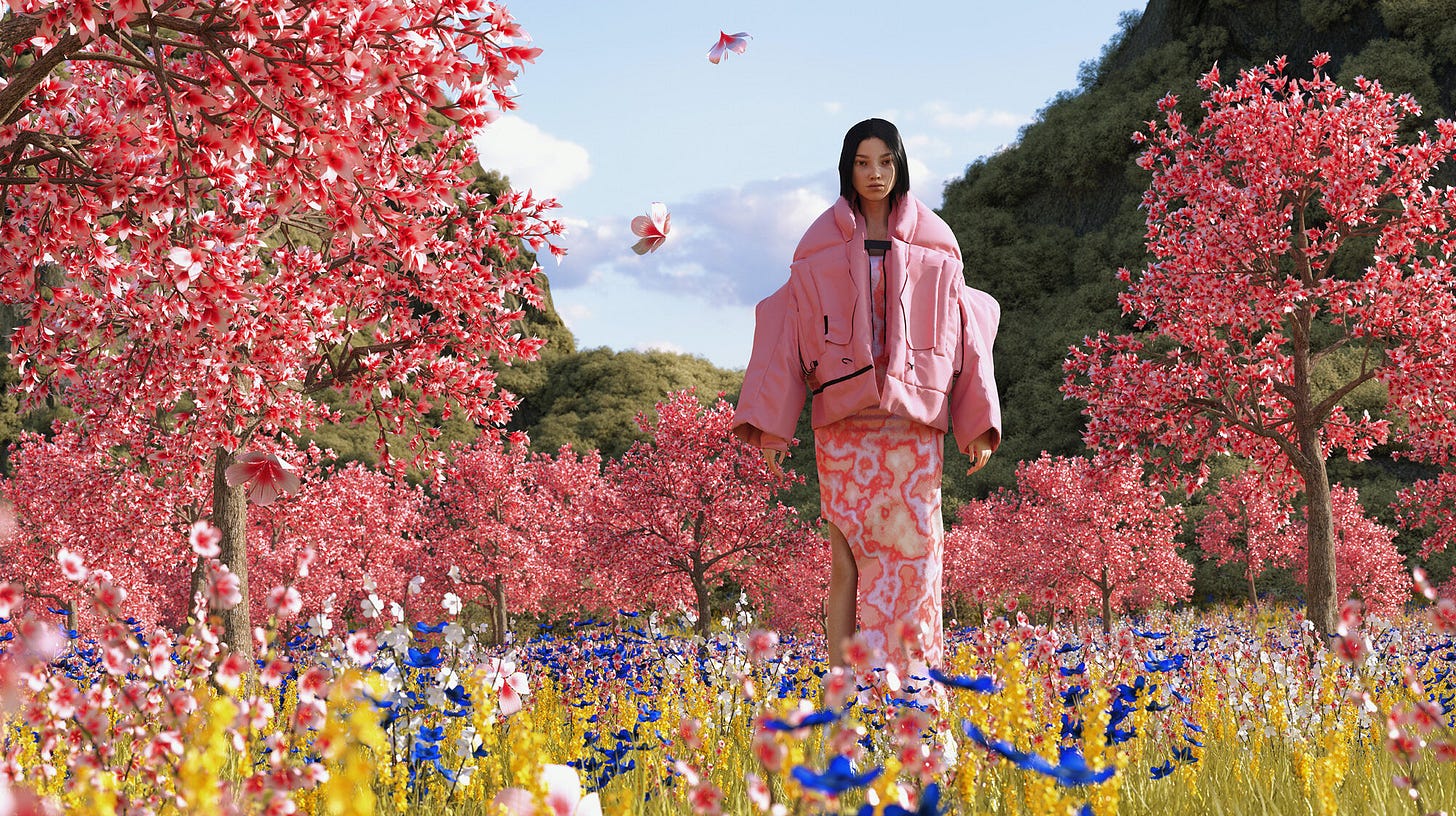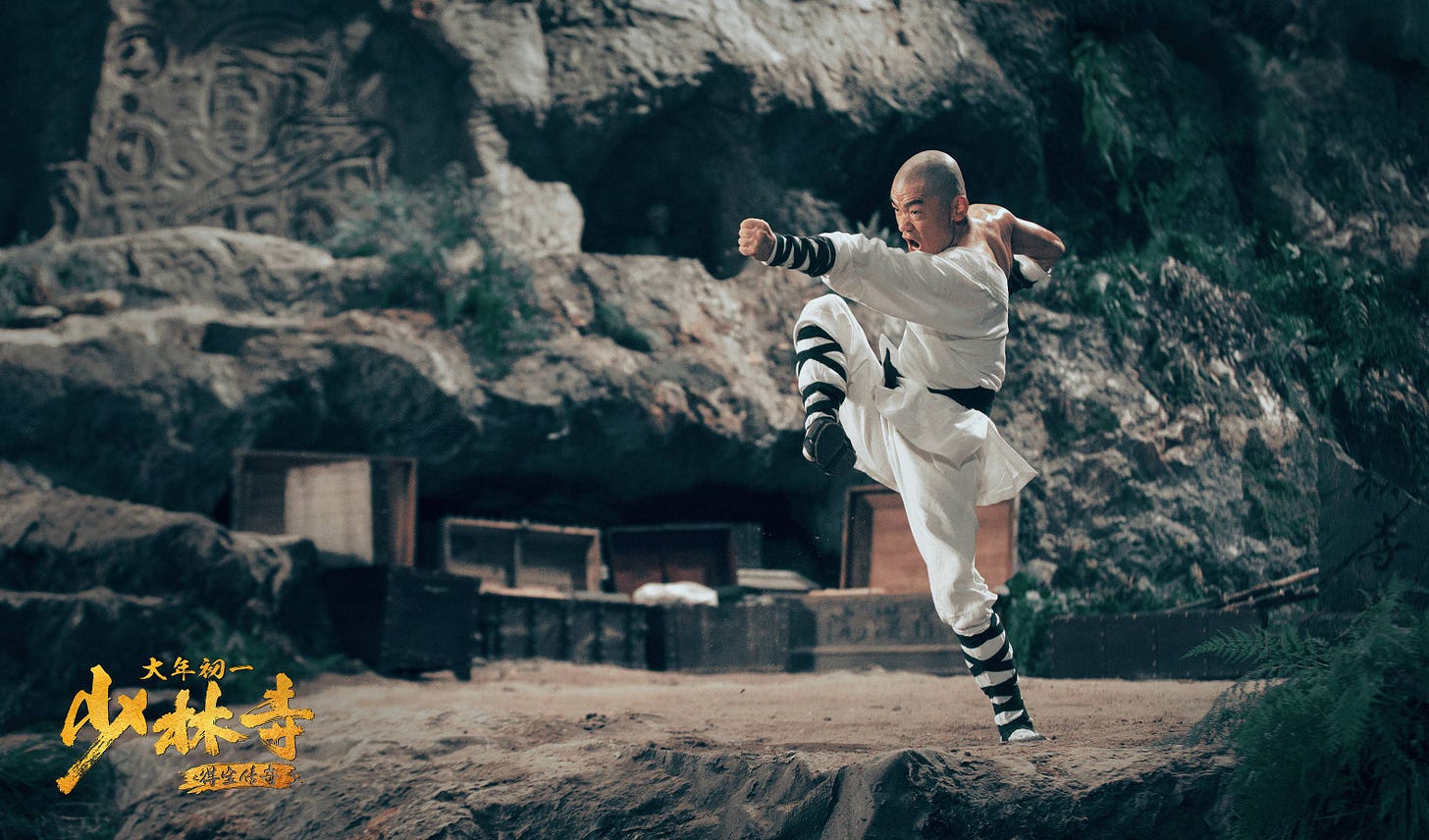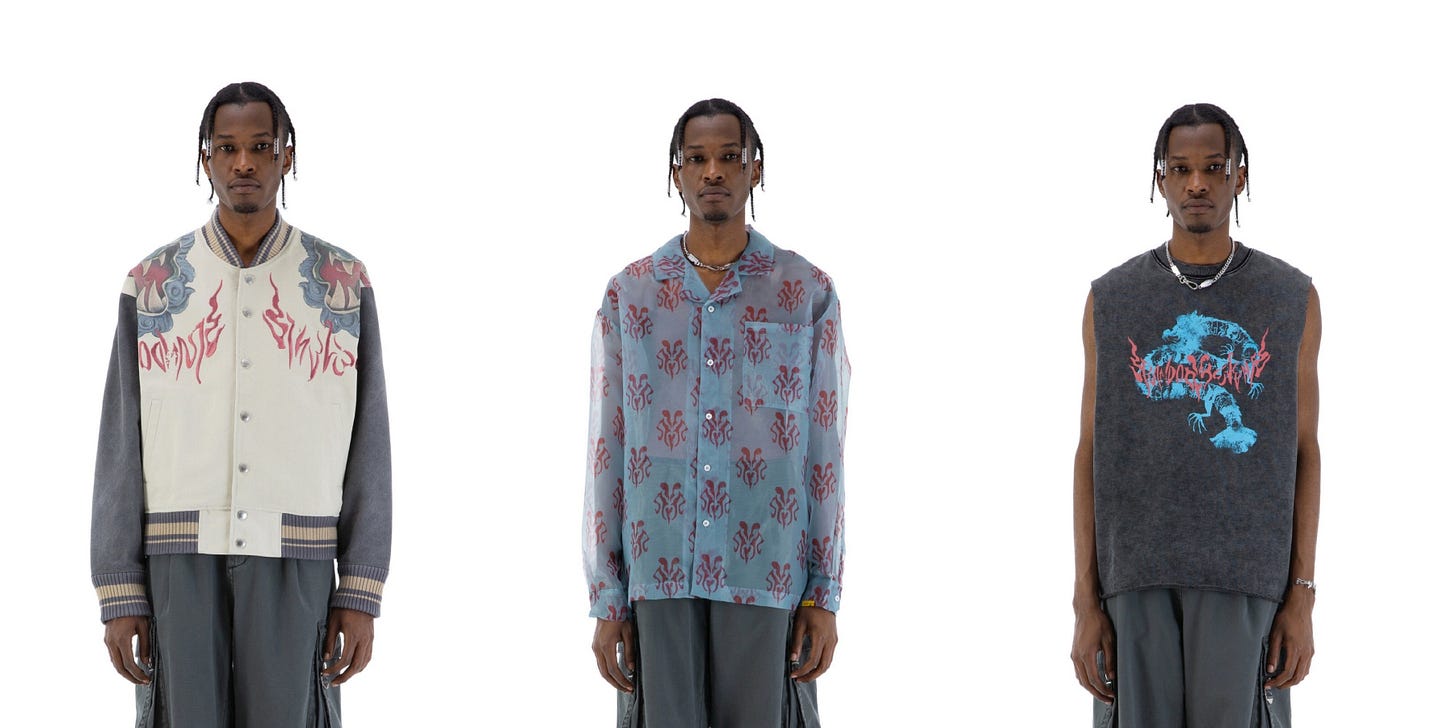January 2021 Best of Brand Collaborations
Plus: An OG star makes his Douyin debut, the future of paid streaming, and a crowded Spring Festival gala calendar.
Published three times per week, the Content Commerce Insider newsletter highlights how brands create content to drive revenue, globally. If you have received our newsletter from a friend or colleague, we hope you will subscribe as well and follow us on LinkedIn and Instagram.
Happy Lunar New Year! Our Future Tech China column will return in two weeks.
The first month of 2021 saw a flurry of marketing activity in the run-up to the Lunar New Year, which begins on the later side this year (February 12) compared with last year (January 25). The extended timeline gave brands the opportunity to deepen their efforts at reaching Chinese consumers during this crucial period, and brand collaborations are an important strategy used to appeal to younger demographics.
So with that in mind, here is our list of best brand collaborations from January 2021:
Top Pick: Gucci x Doraemon
Following up on a successful partnership with Disney for the Year of the Rat that put Mickey Mouse front and center, the Italian luxury house took a slightly different animation-inspired approach for the Year of the Ox. This year the brand’s limited-edition collection is based on the popular Japanese character Doraemon, which is a nostalgic icon among millennials and one of the most influential Japanese cartoons in China.
The only problem is that Doraemon is a blue robot cat, not a bovine creature that would fit in with the typical zodiac marketing. But that’s not really a problem, given that Gucci creative director Alessandro Michele gave Doraemon a festive makeover, reimagining the character with horns and a golden dye job. An expansive campaign encompassing WeChat, online and offline integrations, social commerce, and celebrity influencers leveraged the power of nostalgia marketing.
The appeal of the campaign was most notably reflected in the engagement on social media: the hashtag related to the Gucci x Doraemon collection hit more than 3.5 million views on Douyin, 1.3 million views on Xiaohongshu and 100,000 views on the WeChat post.
Five more noteworthy collaborations from January 2021:
Vans x Suwukou
Working with artists has become a tried-and-tested strategy for brands seeking to up their cultural cachet with China’s increasingly sophisticated consumers, and the skating and streetwear brand Vans continued to focus on appealing to the creative classes with its Lunar New Year collab.
Vans partnered with Chinese designer Suwukou, inviting a group of artists, musicians, skaters, and other creatives to participate in designing a collection for the Year of the Ox. The Vans x They Are series aims to highlight the “bullheaded” spirit of individualism among its creators through their takes on classic footwear and apparel, including monochromatic suede sneakers, plus sweaters and jackets with graphics designed by Chinese artists Gaga (Peng Lei) and Chen Tianzhuo, streetwear brand C2H4 founder Chen Yixi, and skater Xiang Xiaojun.
Pepsi x Ele.me
Since 2012, beverage giant Pepsi has run a recurring Lunar New Year marketing campaign called “Bringing Happiness Home,” incorporating productions with A-list celebrities that creatively align the traditional holiday narratives of family gatherings with Pepsi products. This year, Pepsi partnered with the Alibaba-owned Ele.me to boost the impact of the annual campaign, with a short film that integrated Pepsi products into a story of an Ele.me delivery worker, whose dedication to the job includes working on the eve of the Lunar New Year.
Both the packaging of Pepsi’s signature beverage and the Ele.me worker’s uniform and helmet are in shades of blue, lending a strong visual element to the partnership. An accompanying mobile game gave users the ability to send cans of Pepsi to real-world Ele.me workers, who have come to be known as “blue knights” for their role as essential workers during China’s coronavirus pandemic.
Honor of Kings x Peking University
Higher education represents a new and largely untapped new front in China’s booming brand collaboration scene. After partnering with a range of top-tier consumer brands — from MAC Cosmetics to Burberry — Tencent’s Honor of Kings launched a strategic cooperation with the history department of Peking University (often called the “Harvard of China”).
The partnership involves working with two professors to jointly produce content for the game’s “Chang’An Competition Year,” named after the capital city for much of the Tang Dynasty (618-907), which is widely regarded in China as the peak of ancient civilization. In addition to providing input on the world of the game, the experts appear in a series of short video talks as guides to the culture of the period. Tencent also released an immersive mobile VR tour of the game’s Chang’an scenery and launched a co-creation competition open to the general public in partnership with video streaming platform Bilibili, fan fiction site Lofter, and cosplay app Banciyuan covering the categories of art, design, video, and dance.
Miniso x Bilibili
The low-cost retailer Miniso has relied on content and collaborations to set its brand apart from other “dollar stores,” appealing to young consumers with co-branded goods with the sources of beloved IP from Marvel, Disney, and Sesame Street.
Its latest collaboration with Bilibili follows this approach to elevate the video streamer’s own brand mascots into IP figures. Two new collections were based on the platform’s signature IP characters: the Bilibili TV-head mascot and two anime-style “Bili Girls” (numbers 22 and 33, chosen by users to represent the platform). The co-branded series was a hit among Bilibili’s highly engaged Gen Z core audience (80% of its users are 25 and under), with collectible daily use items such as headphone cases, eye masks, bucket hats, and shopping totes. The product launch was held at a Shanghai Miniso store decorated with a Bilibili theme, drawing fans of the platform to both shop and snap selfies with Bilibili cosplayers.
Canada Goose
Shanghai-based designer Angel Chen has been much in demand by global fashion brands, drawing international attention with her appearance on Netflix’s “Next in Fashion” and creating capsule collections for the likes of Adidas Originals and H&M.
Chen went upscale in her latest partnership with premium outerwear brand Canada Goose, which marked the Canadian brand’s first time working with a guest designer. The 13-piece collection included items for both winter and spring that could work for consumers around the country. Chen’s streetwear-meets-couture aesthetic was clearly reflected in her designs for Canada Goose, with voluminous silhouettes and the incorporation of Chinese traditional elements that would appeal to fans of the guochao (“national trend”) style and help the brand as it expands its footprint in the market.
- by Sky Canaves
Mentioned in today’s newsletter: Adidas, Bilibili, Burberry, Bytedance, Canada Goose, Disney, Douyin, Ele.me, Gucci, H&M, Huawei, iQiyi, Kuaishou, MAC Cosmetics, Miniso, Netflix, Pepsi, Randomevent, Tencent, Vans, WeChat, Xiaohongshu, Xigua Video.
Celebrity Spotlight: In With the Old on Douyin
Celebrities and influencers play an outsize role on Chinese social media and in marketing, and are an essential part of brand marketing to reach consumers. In a new monthly series by CCI for Dao Insights, we take a look at who’s been having the biggest impact and why it matters.
A stormy month for stars
The new year got off to a tumultuous start for China’s celebrity scene, with the surrogacy scandal surrounding actress Zheng Shuang making headlines around the world as her career effectively came to a screeching halt. In comparison, the revelation just a few days later that hugely popular singer Hua Chenyu had fathered a child with ex-girlfriend Zhang Bichen drew attention in a culture where marriage before children is still the overwhelming norm, but certainly nowhere nearly as much scorn, given that Hua has expressed a desire to co-parent his toddler daughter, while Zheng has been accused of abandoning two children born to surrogates in the United States. Huawei heiress Annabel Yao’s attempt to buy her way into star status also flopped, with Chinese netizens comparing her unfavorably to her older sister, Huawei CFO Meng Wanzhou, who has been held in Canada since 2018 while awaiting extradition to the United States on fraud and conspiracy charges.
In light of all this, perhaps the biggest positive celebrity story of the month was Andy Lau’s appearance on Douyin (the Chinese counterpart to TikTok), highlighting both the 59-year-old star’s staying power and the star power of China’s leading short video app, which has emerged as the social media place to be for the country’s top performing artists.
A historic Douyin debut
Despite being in show business for 40 years, Lau had never before established an official social media presence, saying it wasn’t really for him, preferring to interact with fans through his official fan club. Then, on January 27, he appeared on Douyin, and the response was overwhelming. Within just 24 hours, Lau had drawn more than 24 million followers on the platform, and the count more than doubled to surpass 52 million by the end of the month, with 85 million cumulative likes on his first five short videos.
Read the full story on Dao Insights.
In China’s Streaming Market, Premium Video On-Demand Is Where It’s At
by Avery Booker
In last year’s CCI Guide to Streaming Platforms in China, one emerging data point in particular stood out. As a result of the Covid-19 lockdowns in the first quarter of 2020 — and the attendant closures of movie theaters across the country — China’s streaming video platforms debuted 26 films online during the Lunar New Year holiday week, with average daily views of those movies double the previous year’s.
And although most of these films were produced to go straight to streaming, studio Huanxi Media made a historic move when it opted to cancel the theatrical debut of its highly anticipated comedy sequel “Lost in Russia” (囧妈) and partnered with Bytedance to release it for free online, the first time a major studio picture premiered via streaming (in that case, on the Bytedance-owned trio of Douyin, Jinri Toutiao, and Xigua Video, as well as Huanxi’s own fledgling platform).
The release and promotion of another film that had been bound for cinemas, “Enter the Fat Dragon” (肥龙过江), provided a glimpse into the future of streaming in China when it was simultaneously released via Tencent Video and iQiyi last February, as part of the platforms’ video-on-demand services for paid subscribers.
According to data from Tencent Video, the film generated 63 million paid views in the first three days alone. Meanwhile, iQiyi, which distributed “Enter the Fat Dragon” on its VIP early-access platform, said at the time that the company expected paid early access “to serve as a healthy development model for the film sector, under the basis that platforms can attract more users by providing high-quality content, users are more willing to pay for high-quality films while film producers launch more high-quality work with the platforms’ support.”
Read the full story on Content Commerce Insider.
Brand Collab Pick: Randomevent x “A Writer’s Odyssey”
In the hyper-competitive Spring Festival marketing season, it’s become imperative for brands to look beyond the standard collaboration model (such as joint logos on a product) and place a greater emphasis on creativity through partnerships. This is especially true in the fashion sector, where brands vie to outdo each other with holiday-themed limited-edition collections for either gifting or self-treating.
Rather than just put out designs that rely on the Chinese zodiac (the Ox this year), the Shanghai-based streetwear label Randomevent paired up with one of the hottest IPs of this year’s holiday, the film “A Writer’s Odyssey” (刺杀小说家), a suspenseful fantasy epic directed by Lu Yang and featuring Yang Mi (known as “the goddess of goods” for her brand endorsement power).
The men’s capsule collection includes embroidered jackets, t-shirts, hats, and other apparel that merges contemporary street culture with more traditional-style imagery from the film— a combination meant to appeal to the growing number of fans of guochao (国潮, “national trend”) style.
News From China
The Spring Festival gala field is a crowded one this year, with at least 17 major network shows on the schedule from February 4-12, including the biggest of them all from state broadcaster CCTV on February 11, the eve of the Lunar New Year.
Comedy is always a big draw, and several of the major players are focusing on humorous content, including Zhejiang Satellite TV, which is partnering with the Alibaba-owned streaming platform Youku this year. Some of the most popular up-and-coming comedy stars, such as Li Xueqin, are highly in-demand and will be making the rounds with appearances on various galas.
Meanwhile, CCTV is moving away from its heavy reliance on the comedians favored by older audiences to make more room for young celebrities, much to the dismay of some. In 2016, only eight so-called “traffic stars” appeared on the central broadcaster’s gala, but last year the figure was 30, and top names such as Wang Yibo, Huang Zitao, and Li Xian are expected to be onstage this year. But they’d better come prepared to perform — according to newly issued guidelines from the China Association of Performing Arts, lip-syncing in live performances is not allowed.
Douyin goes for the grassroots. While Bytedance’s Chinese TikTok counterpart is known as a major hub for celebrities and rival Kuaishou has a reputation for amateur creators hailing from small-town China, the tables are turning somewhat.
We’ve previously covered Kuaishou’s efforts to upgrade its content and go mainstream, but now Douyin, which already has more than 600 million daily active users, is targeting the hometown vibe with its “DOU Cloud New Year” campaign.
The Chinese government has strongly discouraged migrant workers from returning to their hometowns this year due to a recent uptick Covid-19 cases, so Douyin’s campaign is aimed at fostering a sense of community among those who are unable to travel.
Douyin will air 362 holiday livestream broadcasts from February 9-16 featuring down-to-earth celebrities such as Tibetan herder Ding Zhen and comedian Zhao Benshan. To recreate a sense of engaging in the usual holiday activities among users, Douyin’s livestreams will incorporate interactive elements such as live chats, Q&As, and karaoke features that will allow users to sing along with the stars as well as with far-away friends and family members.
News in English
Bilibili banned new posts from one of its most popular creators, Lexburner, and is reportedly suing him over “inappropriate remarks” made during a livestream broadcast about a controversial animated series from Japan. Sixth Tone
At least three brands have reportedly cut ties with Bilibili over the show, which has been heavily criticized for its misogynistic content and was ultimately pulled by Bilibili, citing “technical issues.” Quartz
General Motors’ China venture and a vehicle tech supplier have filed an anti-monopoly complaint against Tencent, alleging that WeChat abused its dominant market position to restrict sales. Reuters
Jack Ma’s media empire may have overstepped some boundaries when it came to tackling issues that China’s state media and its bosses typically oversee. Bloomberg
Now that Clubhouse is banned, the future for audio-only chat in China may be in less politically sensitive entertainment content. SCMP
Throwaway luxury: Most Chinese consumers are keeping their designer goods for only one to three years, according to a study by conglomerate Kering. Green Queen
Beauty brand incubator and e-commerce platform IDS BuyBuyBuy prioritizes quality content over making sales to establish relationships with consumers. KrAsia
Traditional holidays and e-commerce shopping festivals dictate sales cycles in China, and it’s necessary for brands to understand them to stay competitive. WWD
Producers of a Chinese drama series found themselves in an embarrassing situation when viewers spotted the lead actress wearing a Gucci knock-off sweater in one scene. Drama Panda
Branded songs are increasingly popular for marketing in China, but you might have to be drunk to enjoy the “really bad rap song” from famed liquor brand Kweichou Moutai. Radii
Social commerce platform Pinduoduo released a list of best-selling products for the Lunar New Year holiday, with fitness kits, pet clothing, and books among the top for young consumers. Pandaily
Brands are pivoting to cater to this year’s “staycation” trend with special products and services to meet their at-home needs. China Marketing Insights
Baidu plans to celebrate the Lunar New Year by launching a fleet of self-driving vehicles in the southern city of Guangzhou. Caixin
Instead of bragging about how much money it is giving away for the Spring Festival, the troubled tech firm LeEco is making light of its $1.9 billion in debt. Caixin
New Balance was awarded nearly $4 million in damages in a case it brought against two Chinese brands that it alleged were copying its slanted “N” logo. Financial Times
We’ve Got China Covered
China Film Insider: New Animation Film Retells Nezha Myth in Chinese Cyberpunk Style
Jing Daily: Four Marketing Tactics to Win China in 2021
Jing Culture & Commerce: Curatours Paves the Way for Social and Bespoke Virtual Museum Experiences

